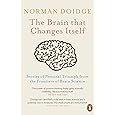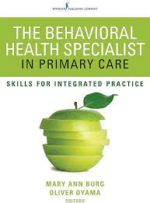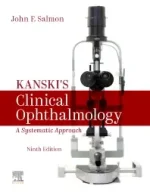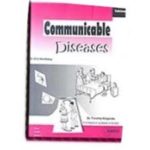An astonishing new science called neuroplasticity is overthrowing the centuries-old notion that the human brain is immutable. Psychiatrist and psychoanalyst Norman Doidge, travelled around the US to meet both the brilliant scientists championing neuroplasticity and the people whose lives they’ve transformed – people whose mental limitations or brain damage were seen as unalterable. We see a woman born with half a brain that rewired itself to work as a whole, blind people who learn to see, learning disorders cured, IQs raised, aging brains rejuvenated, stroke patients learning to speak, children with cerebral palsy learning to move with more grace, depression and anxiety disorders successfully treated, and lifelong character traits changed. Using these marvellous stories to probe mysteries of the body, emotion, love, sex, culture, and education, Dr. Doidge has written an immensely moving, inspiring book that will permanently alter the way we look at our brains, human nature, and human potential.
The Brain That Changes Itself
KSh 1,095.00
An astonishing new science called neuroplasticity is overthrowing the centuries-old notion that the human brain is immutable. Psychiatrist and psychoanalyst Norman Doidge, travelled around the US to meet both the brilliant scientists championing neuroplasticity and the people whose lives they’ve transformed – people whose mental limitations or brain damage were seen as unalterable. We see a woman born with half a brain that rewired itself to work as a whole, blind people who learn to see, learning disorders cured, IQs raised, aging brains rejuvenated, stroke patients learning to speak, children with cerebral palsy learning to move with more grace, depression and anxiety disorders successfully treated, and lifelong character traits changed. Using these marvellous stories to probe mysteries of the body, emotion, love, sex, culture, and education, Dr. Doidge has written an immensely moving, inspiring book that will permanently alter the way we look at our brains, human nature, and human potential.
1 in stock
Related products
-
The Behavioral Health Specialist in Primary Care: Skills for Integrated Practice
KSh 12,600.00Patients with chronic conditions often need psychosocial support and brief counseling to help them make the lifestyle and behavioral changes required to prevent disease complications. This innovative text, with contributions from respected clinicians and researchers in all arenas of behavioral health, provides comprehensive training for all health professionalsóincluding those in medicine, nursing, social work, mental health, and clinical and health psychologyówho desire targeted evidence-based training in behavioral health skills. Rich case examples drawn from typical patient presentations demonstrate the relationship between physical and psychological health and the complexity of behavioral change in chronic illness.
This text is a timely, relevant, and practical resource for all members of the primary care team. It prepares team members to work in the model of patient-centered integrated care in accordance with the recommendations of the Affordable Care Act (ACA) and the National Committee for Quality Assurance (NCQA) medical home standards for identifying patient needs and providing coordinated and comprehensive patient care. The book focuses on knowledge and skills needed for working with the most common chronic conditions such as diabetes, obesity, chronic pain, cardiovascular conditions, sleep disorders, geriatric conditions, cancer-related conditions, and substance abuse. It includes chapters on epidemiological trends in chronic illness and systems medicine. Theories of health behavior and behavioral change and evidence-based interventions provide a foundation for skill development, followed by detailed coverage of the requirements for behavioral management of specific chronic conditions. Sample referrals and consultation notes provide concrete examples of how the behavioral health specialist might respond to a referral.
KEY FEATURES:
- Provides comprehensive graduate-level training for the role of Behavioral Health Specialist
- Describes the health promotion and counseling skills needed to function as part of an integrated health team
- Focuses on proficiencies needed for working with common chronic conditions
- Addresses the psychosocial components of primary care disorders
- Includes case examples demonstrating the relationship between physical and psychological health and the complexity of behavioral change in chronic illness
-
Community-Based Participatory Research for Health: Advancing Social and Health Equity 3rd Edition
KSh 7,840.00The definitive guide to CBPR concepts and practice, updated and expanded
Community-Based Participatory Research for Health: Advancing Health and Social Equity provides a comprehensive reference for this rapidly growing field in participatory and community-engaged research. Hailed as effective by the Centers for Disease Control and Prevention, CBPR and CEnR represent the link between researchers and community and lead to improved public health outcomes.
-
Molecular diagnostics: Fundamentals, Methods, and Clinical Applications
KSh 8,680.00Molecular diagnostics continues to grow in importance in the clinical laboratory. This respected text will prepare your students with a grounding in the fundamental principles of molecular biology. current methods, and their clinical applications.
With a focus on the application of molecular concepts to diagnostic purposes, the text explains and illustrate the use and interpretation of molecular-based assays in patient care. Now with an expanded discussion of nucleic acid sequencing, with added emphasis on next generation sequencing (NGS), and updated coverage of proteomics and mass spectrometry applications, your students will have the most current information available today.
-
Kanski’s Clinical Ophthalmology A Systematic Approach
KSh 24,646.00Through eight outstanding editions, Kanski’s Clinical Ophthalmology has been the classic specialty textbook, providing the perfect ophthalmology foundation for trainees and a valuable reference source for experienced practitioners. Building on the previous edition by Dr. Brad Bowling, Dr. John Salmon from Oxford University has comprehensively revised the textbook. The 9th Edition retains Dr. Kanski’s highly effective format of succinct text and visually dynamic presentation, providing authoritative, focused guidance on the diagnosis and management of ophthalmic disorders. Extremely well organized and comprehensive in scope, this visually stunning book reflects the latest advances in the field, facilitating quick comprehension to enhance learning, aid exam preparation and guide clinical practice. As a general ophthalmic textbook, this is the gold standard.
-
Introduction to Epidemiology
KSh 4,820.00Recognized by Book Authority as one of the best Public Health books of all time, Introduction to Epidemiology is a comprehensive, reader-friendly introduction to this exciting field. Designed for students with minimal training in the biomedical sciences and statistics, this full-color text emphasizes the application of the basic principles of epidemiology according to person, place, and time factors in order to solve current, often unexpected, and serious public health problems.Students will learn how to identify and describe public health problems, formulate research hypotheses, select appropriate research study designs, manage and analyze epidemiologic data, interpret and apply results in preventing and controlling disease and health-related events. With real-world examples in the form of case studies and news files in each chapter, Introduction to Epidemiology is an accessible and effective approach to learning epidemiology.The Eighth Edition features:- Same organization as the prior edition allowing for easier transition- New or expanded coverage of the models of causation, methods of age adjustment, age-period cohort models, incubation and latency periods, and receiver operating characteristic (ROC) curves- Clearer connection between statistical inference and causal inference- New and updated practical examples and News Files help solidify concepts and show real-world application- Updated tables and figures throughout- Access to Navigate 2 online learning materials, including a comprehensive and interactive eBook, student practice activities and assessments, learning analytics reporting tools, and more- A built-in adaptive learning feature enables students to take self-assessments before or after reading a chapter. Based on their performance they can map out their own custom study plan that directs them to the areas of the text to review.
-
communicable diseases
KSh 3,000.00This manual covers the full range of communicable diseases in the African region: skin infections, malaria and other vector-borne diseases.
-
Management Principles for Health Professionals
KSh 7,420.00Management Principles for Health Professionals is a practical guide for new or future practicing healthcare managers. The customary activities of the manager―planning, organizing, decision making, staffing, motivating, and budgeting―are succinctly defined, explained, and presented with detailed examples drawn from a variety of health care settings. Students will learn proven management concepts, techniques, models, and tools for managing individuals or teams with skill and ease.The Eighth Edition continues to present foundational principles of management in the context of contemporary health care. With timely coverage of such topics as medical cost sharing; use of robots; ER by appointment; increased use of observation units; renewed use of flextime staffing and scheduling; use of social media on the job, and more, this thoroughly updated text addresses the latest trends and issues that today’s health care manager is likely to encounter.Key Features- Presents 2 new tools ―The Manager’s Wheel Book and the Management Reference Portfolio ― to help new managers better understand their role and responsibilities and to aid existing managers in understanding their organization in detail- Covers managing care in a wide variety of health care settings (urgent care centers, specialty clinics, home care, etc.) outside of the traditional hospital setting.- Addresses technology and its impact, including eVisits/telemedicine, implementation of electronic health records, connectivity and the expectation that workers will respond during off hours via email and instant messaging, etc. – Offers expanded coverage on the importance and impact of corporate culture, the values of transparency and accountability, leadership style, and competitiveness.- Includes detailed examples of reports, plans, directives, union contracts, and more.
-
Student Workbook for Essentials of Dental Assisting, 7th Edition
KSh 7,685.00Reinforce your understanding of dental assisting concepts and practice essential skills! With chapters corresponding to the chapters in Essentials of Dental Assisting, 7th Edition, this student workbook provides a variety of exercises and activities to help you master the role and responsibilities of the dental assistant. Learning activities include review questions, competency sheets, and handy flashcards, each applying your knowledge to preclinical and clinical procedures. It’s an ideal study tool to use in dental assisting courses and to prepare for national board and state certification exams!










Be the first to review “The Brain That Changes Itself”